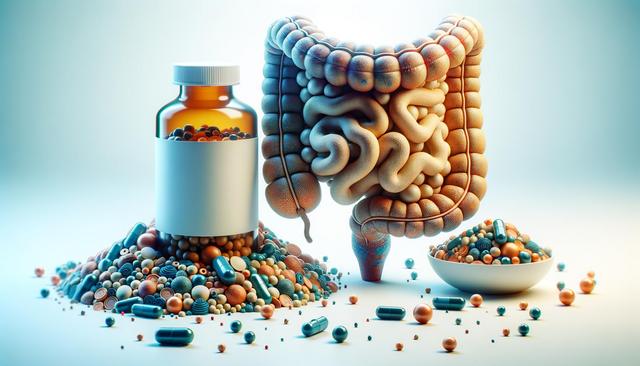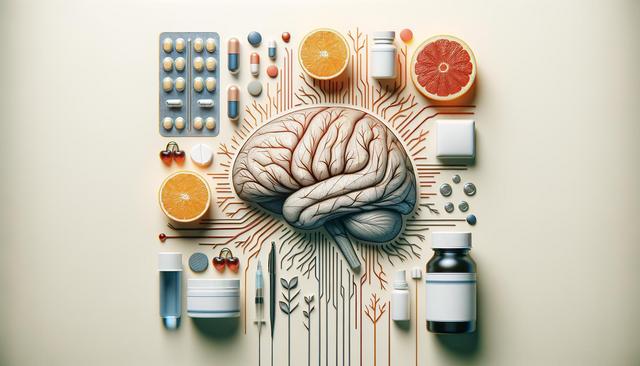Understanding IBS and Its Possible Triggers
Irritable Bowel Syndrome (IBS) is a functional gastrointestinal disorder characterized by symptoms such as abdominal pain, bloating, gas, and altered bowel habits including diarrhea or constipation. While the exact cause of IBS remains unclear, several factors are known to contribute to its onset or aggravation. These include stress, diet, gut microbiota imbalance, and certain medical conditions. Among these triggers, medications are increasingly being recognized as a potential factor in either initiating or worsening IBS symptoms. The gastrointestinal tract is highly sensitive to chemical changes, and some drugs can disrupt the gut’s natural balance or motility, making individuals more susceptible to IBS-related discomfort.
Antibiotics and Gut Microbiota Disruption
Antibiotics are widely used to treat bacterial infections, but they can also significantly alter the gut microbiome. The gut contains a complex community of microorganisms that play a vital role in digestion and overall health. When antibiotics are taken, they may kill not only harmful bacteria but also beneficial ones, leading to an imbalance known as dysbiosis. This disruption can result in gastrointestinal symptoms similar to those seen in IBS and may even contribute to the development of the disorder in predisposed individuals.
Common effects of antibiotic-induced dysbiosis include:
- Increased intestinal inflammation
- Changes in bowel movements
- Reduced bacterial diversity
- Overgrowth of pathogenic bacteria
While antibiotics are necessary for treating infections, their use should be carefully managed, especially in individuals with a history of gastrointestinal issues.
Pain Relievers and Gastrointestinal Side Effects
Nonsteroidal anti-inflammatory drugs (NSAIDs) are frequently used to relieve pain and inflammation. However, long-term or high-dose use of these medications can irritate the gastrointestinal lining, potentially leading to symptoms that overlap with IBS. These drugs may affect intestinal permeability, allowing substances to pass through the gut lining more easily, which can trigger immune responses and contribute to chronic digestive complaints.
Reported gastrointestinal side effects from NSAIDs include:
- Stomach pain and cramping
- Diarrhea or constipation
- Increased intestinal permeability (leaky gut)
- Minor bleeding or ulcers in severe cases
For individuals experiencing IBS-like symptoms while on pain relievers, discussing alternative medications with a healthcare provider may be beneficial.
Antidepressants and Digestive System Impacts
Antidepressants are sometimes prescribed to manage symptoms of IBS due to their effects on the gut-brain axis. However, in some cases, these medications might also be associated with gastrointestinal side effects, particularly when first introduced or if dosages are adjusted. Selective serotonin reuptake inhibitors (SSRIs) and tricyclic antidepressants (TCAs) can influence gut motility and sensitivity, which may lead to changes in bowel habits or abdominal discomfort.
Common digestive effects linked to antidepressant use include:
- Nausea
- Diarrhea or constipation
- Appetite changes
- Increased bloating or gas
While these medications can be helpful for managing emotional stress—which itself is a trigger for IBS—careful monitoring is necessary to ensure they are not contributing to digestive issues.
Other Medications That May Affect Gut Function
Beyond antibiotics, pain relievers, and antidepressants, several other classes of medications may influence gut health and potentially lead to IBS-like symptoms. These include medications that affect the nervous system, metabolic processes, or hormone regulation. For example, certain medications used to manage diabetes or high blood pressure can alter digestive function either directly or through their effects on the autonomic nervous system.
Examples of medications that may impact the gut include:
- Medications for high blood pressure (e.g., calcium channel blockers)
- Opioids for chronic pain management
- Iron supplements, which can cause constipation
- Laxatives when used excessively, leading to dependency and altered bowel function
It’s essential to assess medication histories for individuals presenting with new or worsening IBS symptoms, as these could be a contributing factor.
Conclusion: Managing Medication Use to Support Gut Health
While medications are prescribed to treat a wide range of conditions, it’s important to recognize their potential impact on gut health. For individuals experiencing symptoms consistent with IBS, reviewing current and past medication use with a healthcare provider can be a valuable step in identifying possible contributors. Adjusting dosages, switching to alternative treatments, or incorporating gut-friendly habits like a balanced diet and stress management can help mitigate negative effects.
Ultimately, awareness of how medications influence gastrointestinal function plays a key role in managing and potentially preventing IBS symptoms. Working with a healthcare provider to find the right treatment balance ensures both the primary condition and digestive health are addressed effectively.




Leave a Reply